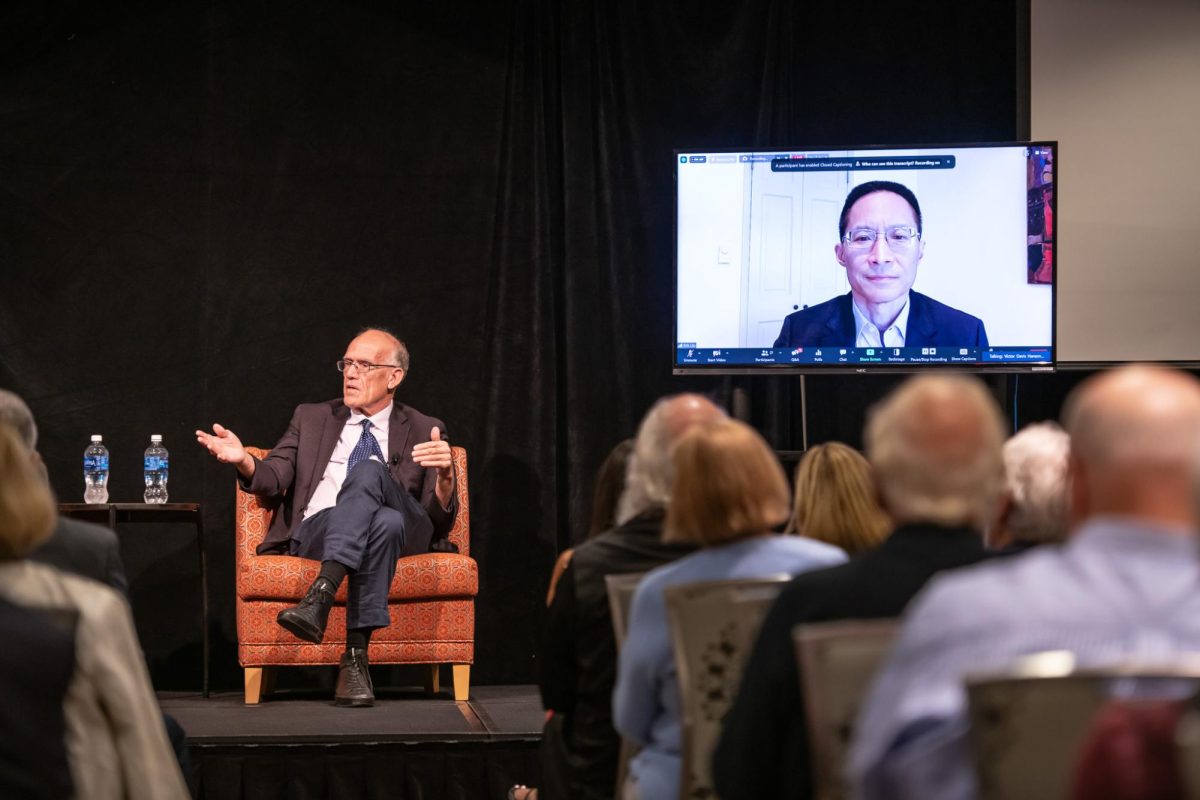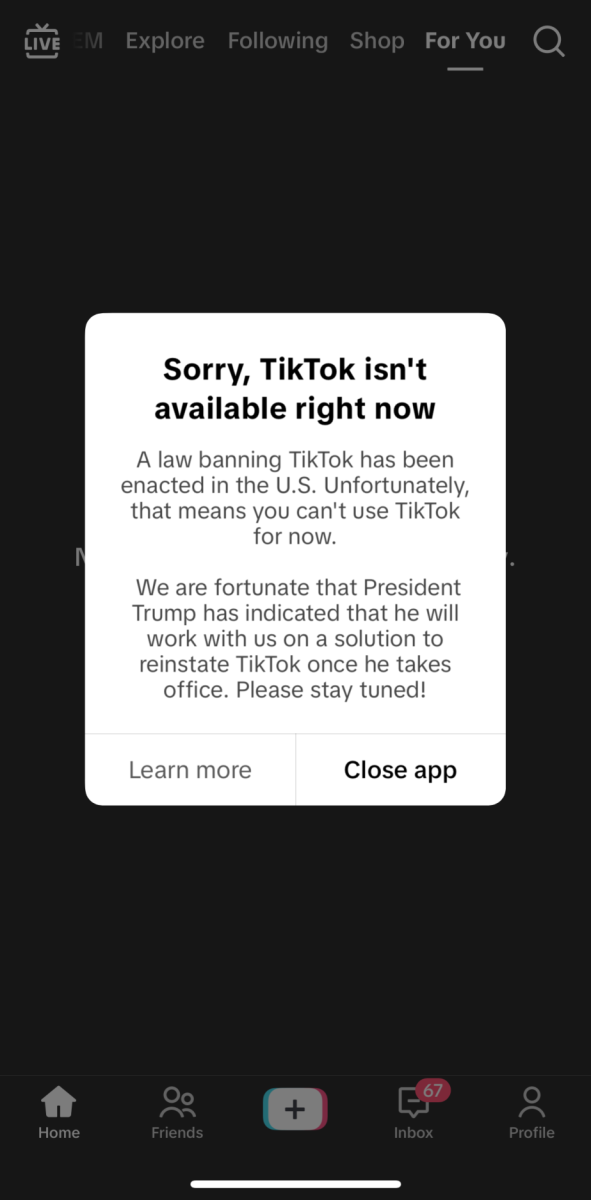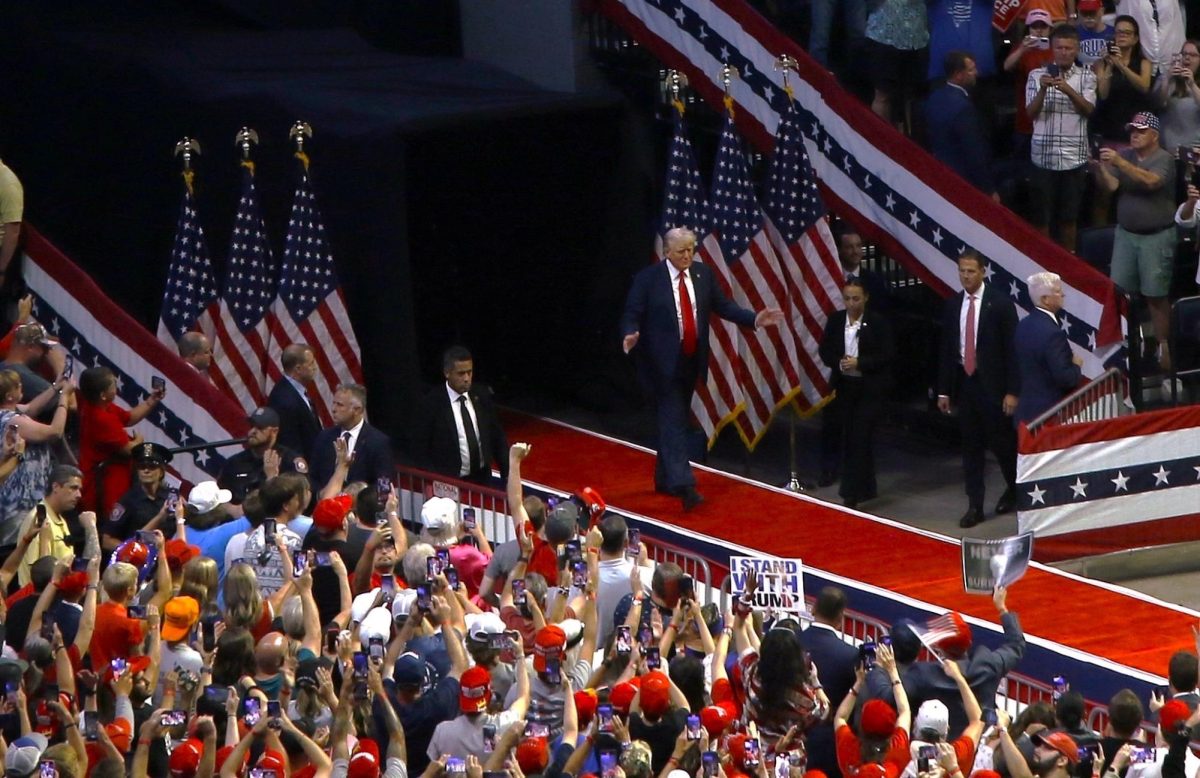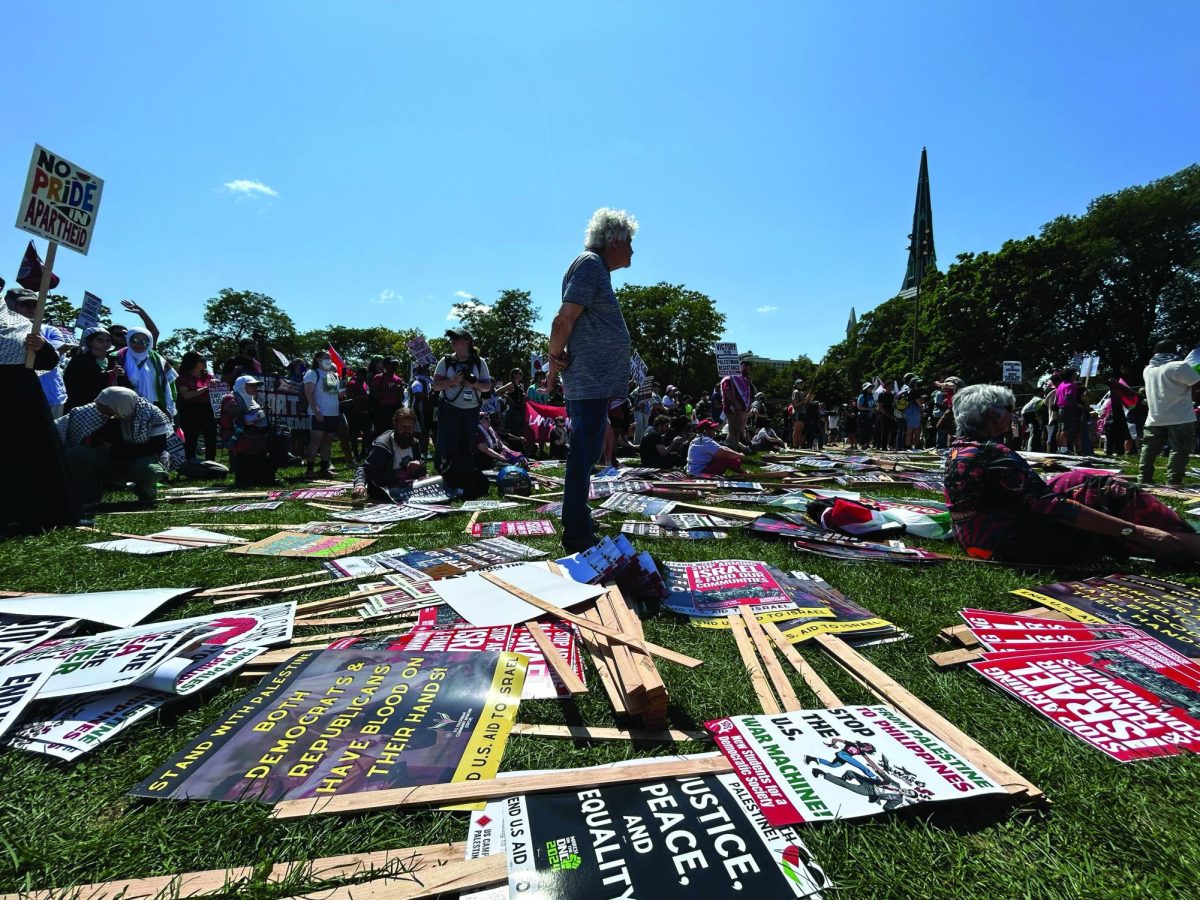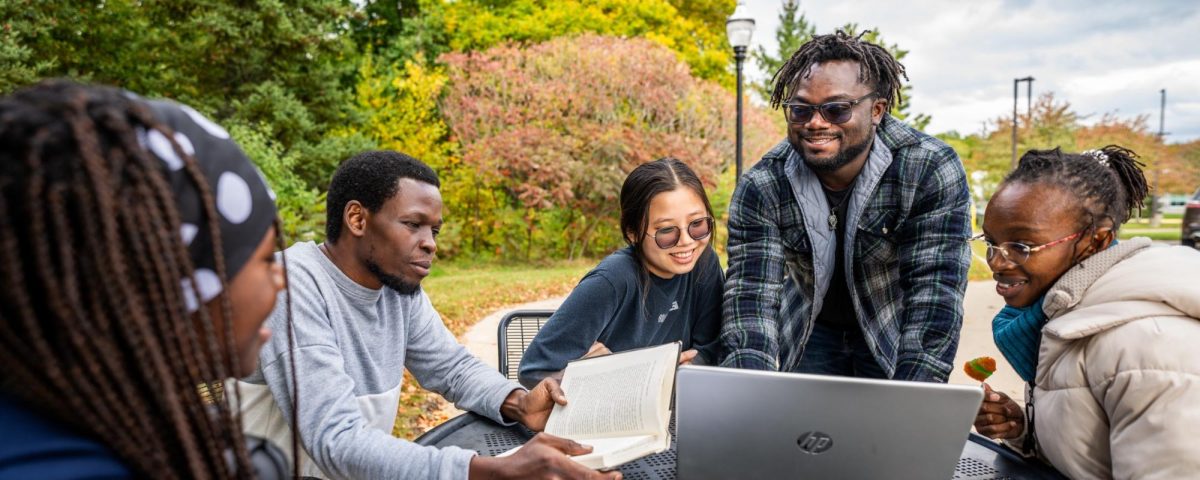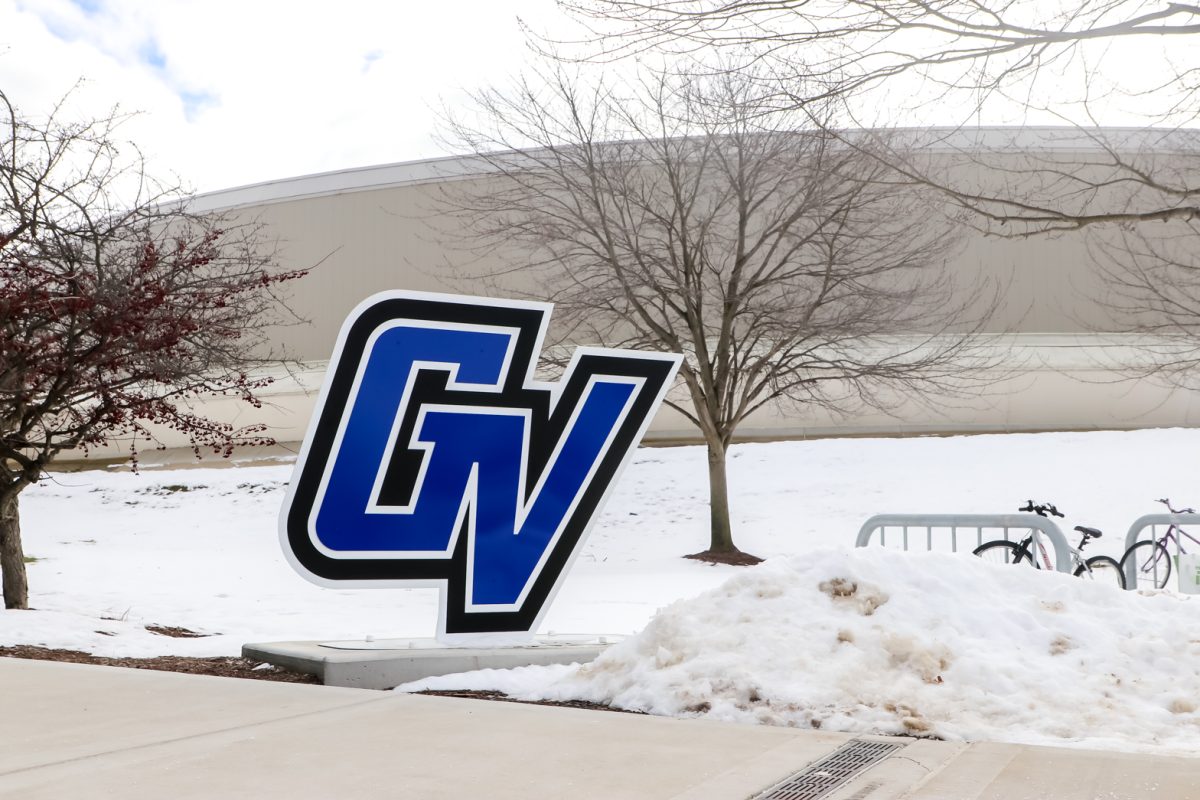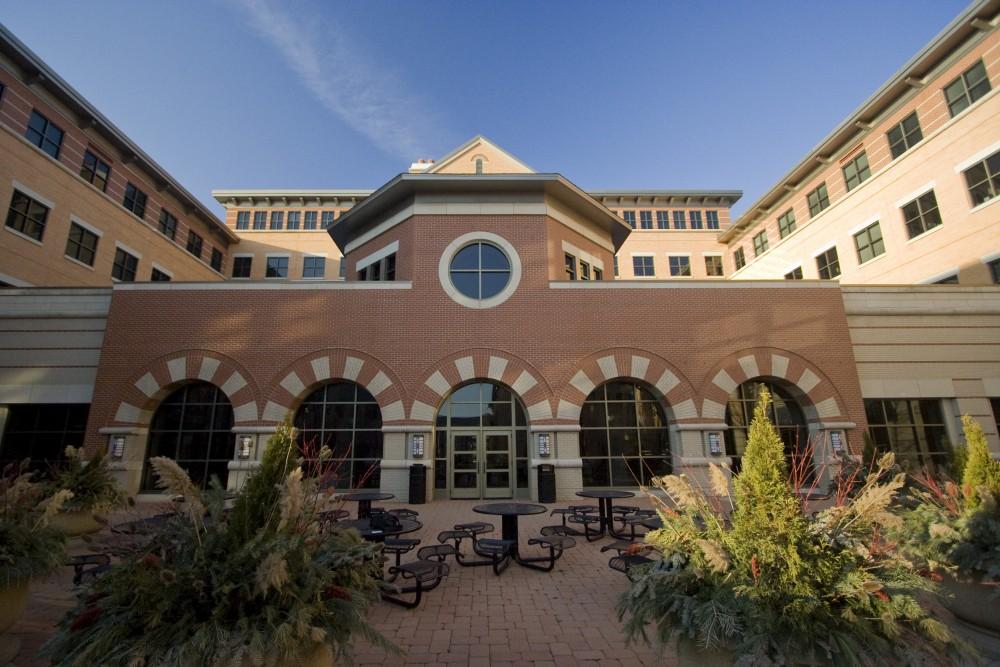Students and community members gathered in the L.V. Eberhard Center, located on Grand Valley State University’s Pew Campus, to attend an event called “Citizenship in Crisis: Re-Empowering the American Citizen with Victor Davis Hanson and Eric Liu” on Sept. 7.
The event was hosted by the Hauenstein Center for Presidential Studies. The panel discussed what it means to be an American citizen on a personal and a more global scale, looking into the challenges of citizenship, or lack thereof.
Mallory Everly, a third year student at GVSU, feels participating in political conversations is really important and attended the event with the intention of seeing where situations of citizenship in the United States could be improved.
“I am here at this specific event because I am very big on social justice,” Everly said. “I love that kind of work and I also think that right now in the United States, one of the things we need the most is civil discourse. I think that the entire concept of American politics is the ability to have a difference in opinions and be able to have constructive and respectful dialogue surrounding that.”
Leading the discussion was Eric Liu, the co-founder and CEO of Citizen University, a non-profit organization that works to build a culture of powerful and responsible citizenship in the United States. He also served as the founding executive director of the Citizenship and American Identity Program at the Aspen Institute.
Liu opened the discussion by drawing attention to how citizenship in America is physically distributed, dividing American citizenship into two categories.
“I would say there are at least two different ways to define the citizen here in the United States. And one of course, is as a matter of legal status when we talk actually about United States citizenship, and as a matter of documentation, it is a matter of birthright for those born in the United States,” Liu said. “Thanks to the 14th amendment to the Civil War and Reconstruction that is a matter that is of course highly contested in a lot of our immigration politics. Right now, this idea that the status conferred by law is something that is bound to the interest point includes some but it excludes some by definition.”
The Hauenstein Center for Presidential Studies at GVSU is a place that routinely welcomes authors, historians and presidential scholars to share their research and work with campus and the surrounding community. The center hosts programs and events of presidential history, democracy and celebrations of national holidays.
Hansen and Liu went into depth about the character and actions of an active citizen in the United States, and how the term “citizen” can describe someone even outside of the legal barriers in place for that status.
“What’s most interesting about the legal definition of citizenship in the United States is number one, how relatively recent it is for the first century in this country’s life. The word citizen appears in the Constitution,” Liu said. “All persons born or naturalized in the United States are subject to the jurisdiction thereof, shall be citizens of the United States, spelled out what it took to become one but it still didn’t spell out what it meant to be (a citizen).”
Liu said his work with Citizenship University has helped to define citizenship in broader concepts.
“The organization that I lead, Citizen University, focuses on and teaches about empowered citizenship, and that is a conception of citizenship that is not about legal status or documentation status, but it’s about a deeper, broader ethical sense of being a contributor to community, being someone who actually shows up for the good of the whole,” Liu said.
Liu said American citizens, by birth and location, who do not take advantage of their personal civic duties make poor use of their citizenship.
“In this broader conception of citizenship, I think two things are known. The first is that there are plenty of people in the United States who have the first kind of citizenship, who are born with the status and born with the papers, but who don’t live like citizens in the second sense: who don’t show up, who don’t serve, who don’t think about their obligations, who don’t know our history. People who don’t try to grapple with the arguments that we’re having today in the American context, which is part of our responsibility,” Liu said.
Liu said some people uphold civic duties and are involved in the community without the legal documentation of U.S. citizenship.
“There are plenty of people who lack the papers and the documentation status and yet live like citizens in this latter sense,” Liu said. “They do show up for community, they do have a deep sense of place and community and responsibility to those around them. And so I think the interweaving of these two conceptions is a through line.”
The panel discussion dissected the shortcomings and challenges of what American identity means in society and acknowledged the difficulties and issues of the process of procuring citizenship even when pride for and service to the country is already in play.




